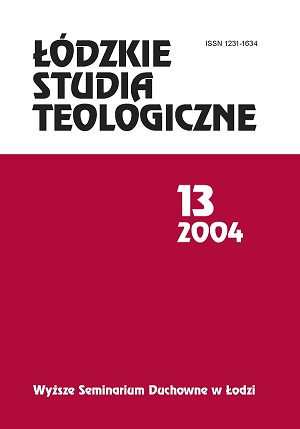Le noeud tragique de la vie. Berdiaeff en dialogue avec Dostoïevski et Nietzsche
The tragic knot of life. Berdiaeff in dialogue with Dostoevsky and Nietzsche
Author(s): Wojciech BłaszczykSubject(s): Christian Theology and Religion, Anthropology, Metaphysics, Epistemology, Existentialism, Philosophy of Religion
Published by: Wyższe Seminarium Duchowne w Łodzi
Keywords: Anthropology; existence; human beings; God; religion; philosophy;
Summary/Abstract: Bierdiajew's entire anthropology is based on the supreme value of freedom. Freedom here is a "boundary concept": indefinable, belongs to nonbeing, which precedes the existence of all being, even the existence of God. From the dynamics of this freedom, it is inevitably a tragedy that freedom is born and which is born of the betrayal of freedom. The main form of tragedy is the possibility of a man's radical departure from God, falling into arbitrariness, into a will. Bierdiajew finds her literary embodiment with Dostoyevsky as Dimitri Karamazov, or even more so in Kirilov in Demies, who wants to become a God in place of God, a Man-god in contrast to the idea of God-humanity that Christianity proclaims. Another form of tragedy is the bad good, or dictatorship of good, described by Dostoyevsky in the Legend of the Grand Inquisitor. Tragedy, suffering, evil and good are personal values. None of them would be able to exist without the existence of a free, spiritual person, a person who is the center of the cosmos. Bierdiajew's anthropocentrism makes him see in a tragic freedom a source of human dignity. By resigning from a tragedy, submitting to a necessity, either in the theocratic or communist system, a man gets rid of freedom and his inherent dignity. Only in the fire of dramatic freedom, in the center of one's suffering humanity, can we become deified, elevate our dignity to her true God-human dimension. Neither the Nietzschean way of a superman without God, nor the way Man against God does not answer the question about human dignity. Only the theandric image of God-humanity embodied in Christ can become the answer to the quest for freedom, the solution to the node of tragedy, tightening around human existence.
Journal: Łódzkie Studia Teologiczne
- Issue Year: 13/2004
- Issue No: 1
- Page Range: 23-44
- Page Count: 22
- Language: French

